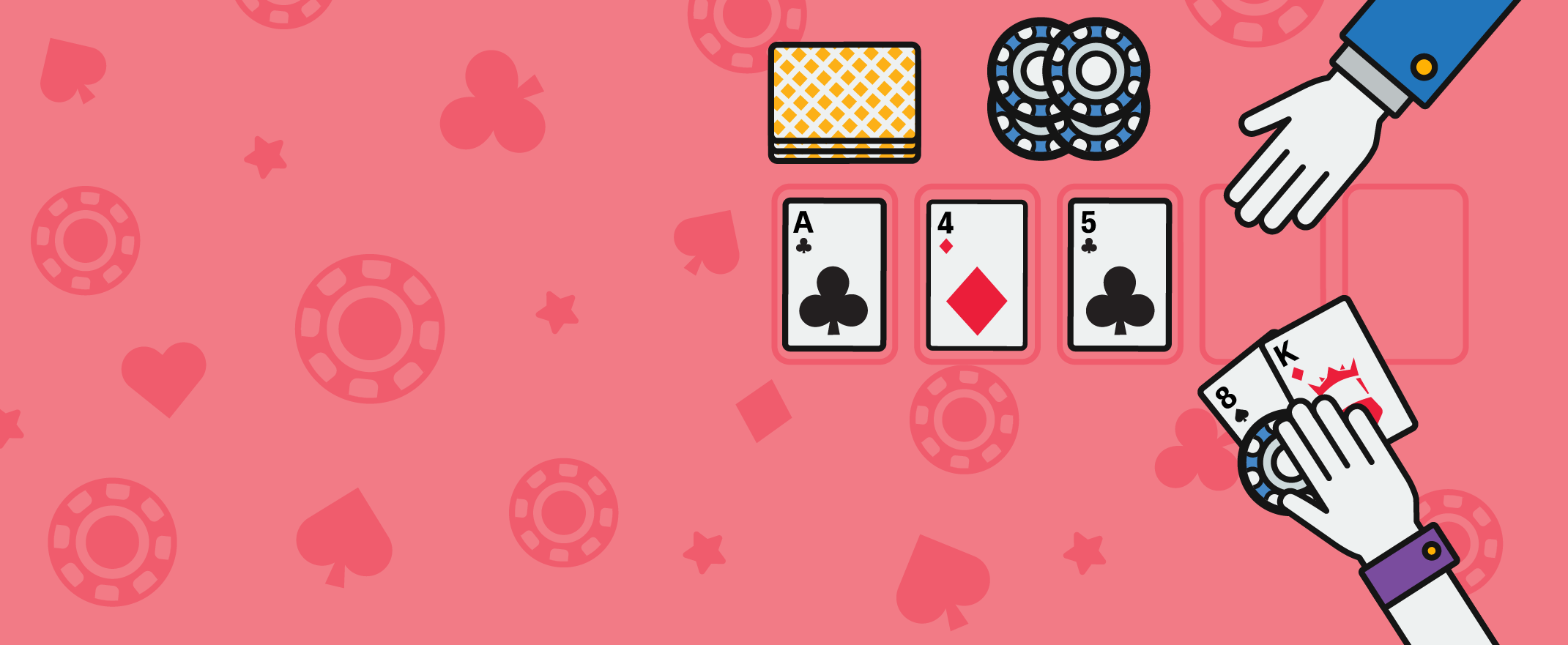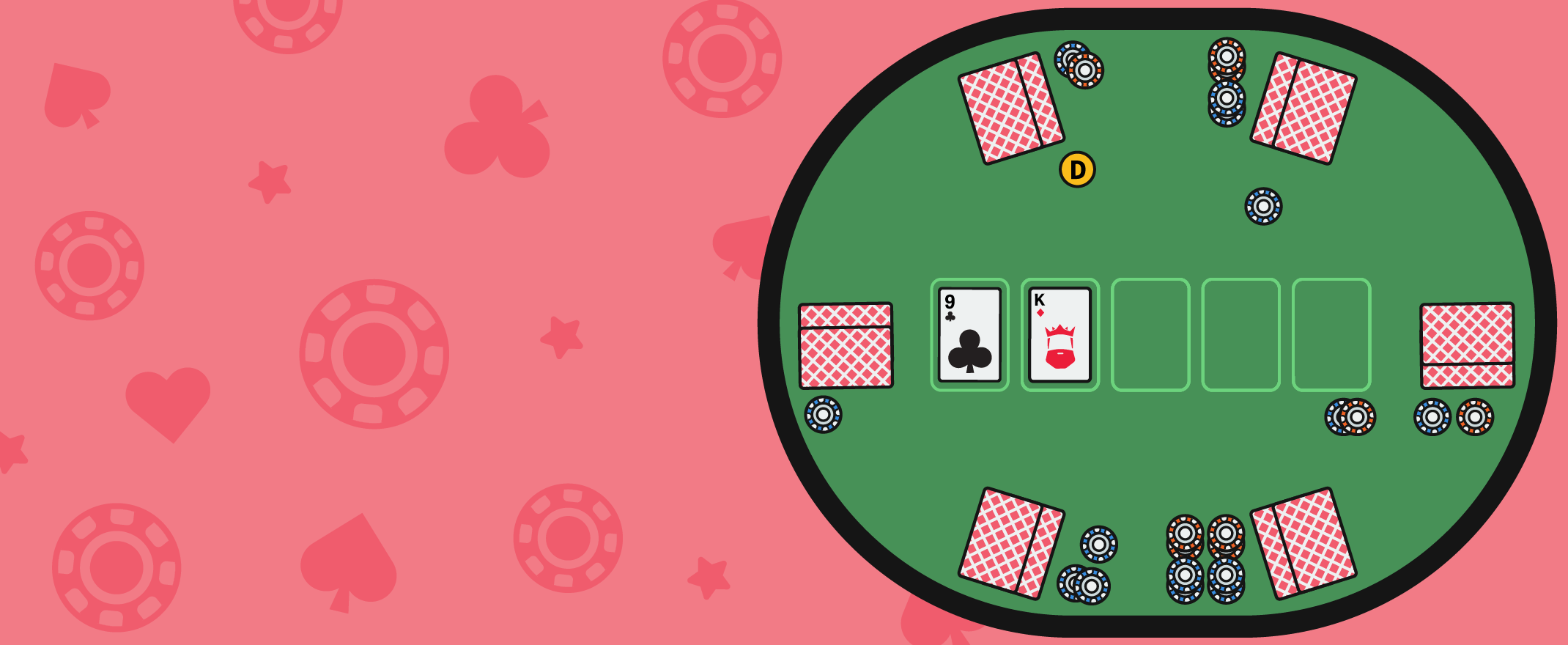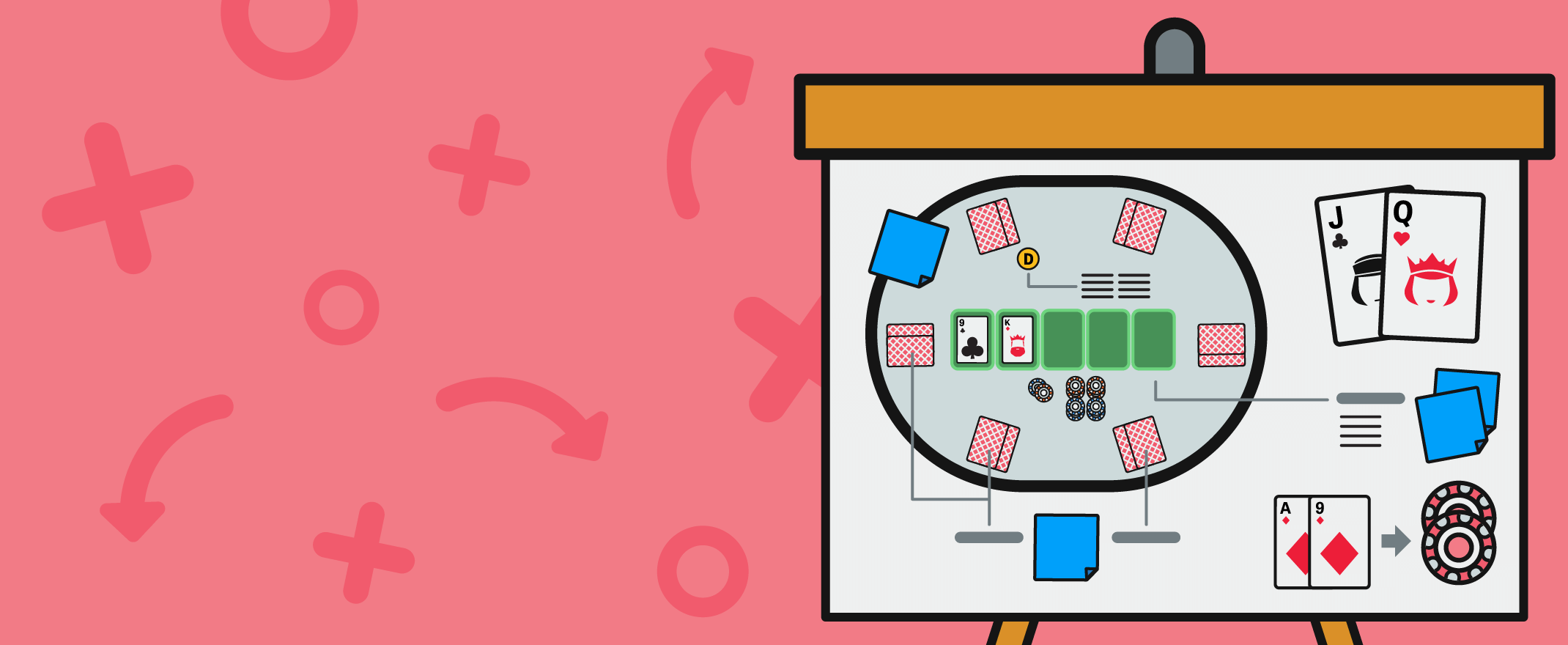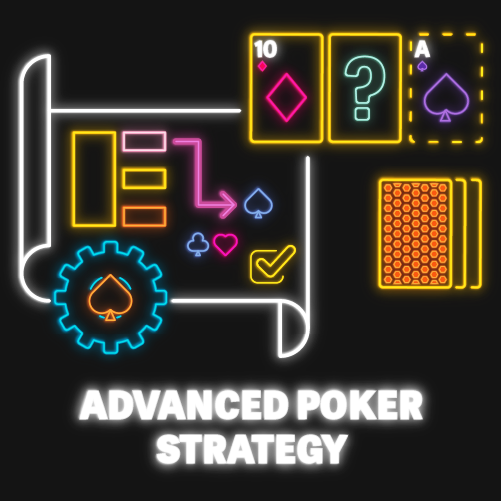Beginner players should start with the basics and JohnSlots has a handy beginner’s guide to poker that lays out the rules, terminology and each step of the game.
Once you have a grasp of the rules and tried a poker game or two to test out your skills, it’s time to explore some strategies. Whether you are playing poker online or at a land-based casino, strategies can help you take your skill to the next level by guiding your play and teaching you how to assess your potential moves.
There are plenty of resources offering players online poker tips and JohnSlots also provides a host of tips and tricks that can help players make the most of their time at the poker table. But before you wander off to explore these areas of the site, read on for our advanced poker training guide.
Find a good poker casino
Any skill-based activity can be improved by practice and this is true for poker as well. One of the most important things you can do to improve your game is to play, play and play some more.
The best way to get that practice is to find a reputable online casino with a range of poker options available. Explore different variants, from Texas Holdem poker to Caribbean Stud to Omaha Hi/Lo, to find out which one you like best and then practice in free mode for as long as you can.
There are many top poker casinos out there but the JohnSlots team has a few favourites. These include PokerStars, 888Casino and TonyBet. Read their casino reviews below to find out more about what these brands offer poker players.
Time to up the stakes
So you have read up on the rules in our poker guide and browsed a few poker tips too. You have played several real money games with low stakes and players who match your skill level. The next step is to raise the stakes.
Now, when we say this, we don’t mean you should go from entry-level games straight to the big leagues. That way lies disaster and a bankroll that will disappear faster than you can say ‘Fold’. The trick here is to join games that have slightly higher stakes than you are used to playing at and not throwing yourself in at the deep end right away.
This measured approach exposes you to new players at higher skill levels, which can teach you how to use your newly acquired poker tactics even better than before. Keep in mind that as stakes increase, so do bet levels and raises so a misstep can easily put a significant dent in your bankroll.
Stick to your strategy throughout and you will always leave with valuable experience and practice, even if you don’t win the cash.

Keep track of the other players
Poker is just as much about other players as it is about the cards being dealt and it’s important to understand how to ‘read’ your opponents when deciding what to do next. Be aware of how players react when cards are dealt, how and when they call or raise and whether they might be pot committed.
This term refers to players who have reached a ‘point of no return’ so to speak, in that they have already invested a lot of chips in the pot and betting or raising would be unwise. A player who has a lot on the line tends to behave in predictable ways. It’s in your interest to keep track of just how much other players have added to the pot.
How to respond to a raise
Let’s set the scene. You have committed a significant amount to the pot already and another player raises. What’s your next step?
The answer to this question takes a lot of factors into consideration. The first is the strength of your poker starting hands. Is your hand weak, strong or somewhere in the middle? When the raising player raised, how many players were already in the pot at the time? A raise against multiple players would indicate a stronger hand than raising against just one player.
You can also make some inferences based on that player’s previous behaviour. Have they bet aggressively in the past? If so, there’s a chance they are bluffing a weak hand but that may not always be the case.
You should also be watching how other players react to the raise. Which of them, if any, hasn’t acted on it? Players raising while in middle positions imply a stronger hand than if they were in button or blind positions.
Your position in the field also makes a difference. Do you have a positional advantage over the raising player after the flop? If so, you may be able to call with a weaker hand. The pot odds count too. Good odds means you should be more willing to raise than if the odds were worse.
Finally, keep your chip situation in mind. What is the likelihood of a better opportunity arising in future? If you choose to fold now, would you risk being forced to play while in a weaker position?
To show your cards or not
So you’ve put those poker tactics to good use and won the poker game! At this point, an online poker room will present you with the option to show your cards to other players or to keep them secret.
The general rule here is to keep the cards to yourself. Your hand gives other players useful information about you, allowing them to piece together clues and patterns that can help them decipher your actions in later games. The less information they have to work with, the better.
That said, there can be a strategic benefit to revealing your hand if doing so causes other players to reach the wrong conclusion as this throws them off the scent and makes your actions unpredictable.

Showing a good hand
If you choose to reveal a good hand, you will likely receive a little more respect from other players, giving you the advantage when trying to steal a pot. What if you have yet another good hand? Even if you don’t, this assumption can work in your favour.
You can also pass it off as a rookie mistake – a newbie so excited about getting a good hand that they show it to everyone. If you’re not a newbie, you have the advantage because other players will assume your skill level (wrongly) and possibly make mistakes as a result.
Showing a weak hand
Let’s say you have a weak hand and decide to show it. This reveals your bluff.
Showing your hand can encourage other players to be more willing to suspect a bluff even when there isn’t one, which works out well for you. This psychological game might also invite other players to become tilted and less controlled in their actions.
When to Check-Raise
There are two reasons a player will check-raise. The first is to add value to the pot because they feel they have the best hand. The second is as a bluff, encouraging opponents to discard potentially strong hands as a result.
As a bluffing mechanism, the check-raise is very powerful and indeed, it might seem a little advanced for those still grappling with poker theory. Newbies tend to check-raise mainly as a value-adding move and that’s perfectly alright.
Before check-raising for value, the player must be in the right position to be the first to act. The opponent must also be ‘right’ i.e. aggressive enough that they will bet with a broad range of hands when a check-raise is presented.
When to “slow play”
Slow playing is a technique used to entice opponents to either fold to a raise or to bet more strongly than they otherwise would because they believe the slow player has a weaker hand.
Essentially, the player plays as though they have a poor hand while in fact having a strong one. This means playing conservatively, which leads opponents to incorrectly assume the player’s strength and then bet accordingly.
This would be considered an experienced player strategy though it doesn’t take a professional poker player to pull it off either. There are risks involved. Slow playing runs the risk of losing the pot-building value of a bet if an opponent checks. It also reduces the protection against hands that could improve over time.
When to donk bet
This amusingly named type of bet is usually one that inexperienced players (or ‘donkeys’) make. It is essentially a leading bet made post-flop, usually small in size and usually made by a player who is not an aggressor in the hand.
This move generally raises a few eyebrows but it can have strategic value in the way that it induces opponents to react, often by raising or as a block to further bets.
Overbetting
An overbet is basically a really big bet, usually larger than a pot-sized bet. At higher stakes games, overbetting is a way to circumvent a capped range.
Players with a strong hand will get maximum value from overbetting and overbets generate the biggest fold equity, too. Opponents unfamiliar with the tactic may be confused by it and falter, giving the overbettor an advantage.
There are many theories about when and where overbetting is the most beneficial. The easy poker school version is as follows. When applied correctly, overbetting can be very useful. Overbet when your opponent has a capped range or when your range is uncapped. Only overbet with a very strong or very weak hand, never with medium hands.
Never forget your position!
There is one element of this game that every top poker player keeps in mind while they play – their position at the table. It’s easy to overlook this factor as it’s not really an ‘active’ part of the game. Players simply take their places at random and the poker can start.
In truth, the position will determine a lot about how a player chooses to act and how poker strategies should be applied. In any good poker tutorial, players will learn the importance of their position and how it will affect their play in the current game and in future ones.
Even players with the best starting hands in poker can be undone by forgetting to factor in their position. As a general guideline, earlier positions i.e. the ones closest to the dealer’s left side are weaker. Players here simply do not have much information to go on and this lack of data is a disadvantage.
Players in late positions, on the other hand, have the benefit of being able to observe how their opponents are playing, what actions they are taking and how they are betting – all useful information when it comes to making decisions on their own next move.
Players in early positions should only play when they have strong hands. Anything less than that should trigger a fold. The range of playable hands grows the later the position is so the dealer (the very last position) could potentially play with a relatively weak hand and still do well.

Take advantage of players that limp preflop
To limp in a poker game is to bet the absolute minimum required to stay in a hand. An example of this is when the small blind calls the big blind instead of raising it. The term flat call can also be used to describe this move.
Most players know that limping when in the first position is a bad idea but in some cases, limping can work to an opponent’s advantage. It is fairly safe to assume that a limper has a weak hand. Raising in order to isolate this player has little risk of getting re-raised. With a positional advantage, the opponent can attack with a wide range of value.
Limpers tend to be either inexperienced or lack confidence. Playing against a limper post-flop means that more skilled players have an edge. By isolating the limper by raising, we induce them to call a raise and then check-fold when the flop is missed.
Change your tactics
Sticking to a strategy is a good idea but it does run the risk of making you easy to predict. This next tip is a good poker tournament strategy, where you might be up against certain players over a length of time, but it works for standard games too.
Once you have played against certain opponents a few times, you will start to figure them and their tactics out. It’s important to remember that they are likely doing the same for you so you must be ready to have not just a Plan B but Plans C, D and E as well.
This means you are prepared to change tack as soon as you realise that your opponents have figured out your strategy and can throw them off course by using different tactics. This takes skill and even a top poker player can sometimes be caught out when they don’t shift strategies fast enough.
Advanced poker training is not so much working on direct skills but on staying ahead of opponents whose objective is to suss you out. You should work on your poker face and staying impassive when cards are dealt or other players take action. If you can do a passable impression of a stone statue, that will be very helpful in keeping them off your back.

Take pot control!
Put very simply, pot control is when a player attempts to keep the pot at a manageable size by making small bets or checking because their hand is one that cannot benefit from betting or raising. It is the opposite of pot building, which aims to grow the pot as much as possible.
How to size your bets is an important skill and one you should always keep at the forefront when you learn poker and poker tactics. Knowing whether to control or build a pot is a sign of a top poker player.
When you have a strong hand, building the pot is usually a top priority and the optimal bet size tends to be higher. For players holding a weaker hand, pot control works to limit the size of the pot to minimise the chances of stronger players wiping out your bankroll with very high bets.
Control yourself and fold!
Poker is exciting and emotional and when someone asks us how to win poker games, we always remind them that staying in control is a key skill. Knowing when to fold is what keeps that top poker player in the game for longer.
If you have made your estimations, examined your cards and the table and come to the conclusion that you’ve got a terrible hand, the best thing to do is to fold. Trying to sail on a sinking ship generally means you’ll go down rather quickly, at the expense of your bankroll.
Protecting your stack should be your number one priority. It is what allows you to keep playing and being in with a chance to win. Without it, you go nowhere. Stay in control of your emotions and learn to recognise signs that you might be tilting. When that happens, walk away, take a break and come back when you are calm, alert and ready to play.
Summary
Advanced poker training covers things that the basic guides do not quite elucidate – subtle tactics, considerations and behaviours that new players might not be able to grasp.
Professional poker players are constantly working on these skills and with practice, newbies can also come to understand these factors and apply them to improve their outcomes at the poker table.
Casino Game Specialist
6+ Years of Experience

Statistics
34 Articles
Harper Gallagher is a respected specialist in online casino games, particularly craps, poker and casino table games. By staying abreast of emerging technologies and trends, she inspires others to pursue their own passions in the exciting world of online casino gaming.
Expert On:



